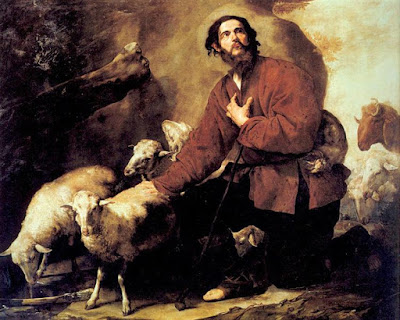Jacob and the Flocks of Laban
There is a section of Genesis that is baffling to many people, myself included. Although Jacob's name means supplanter and he lived up to it, he was the one having his rights taken away by Laban. Jacob devised an arrangement to obtain his wages through breeding Laban's flocks.
Laban gets the plain ones, Jacob keeps those with spots and speckles. But what was happening with the almond and other sticks in the water trough? Mockers point to this section of Genesis to claim that Jacob was using some kind of folk magic, so the Bible is false. Not only is this a hasty generalization and a straw man (claiming the Bible says something that is not there), but they take the passage out of context. They are also showing their ignorance of the medicinal properties of the branches.
Long before the science of genetics was initiated by Gregor Mendel (peas be upon him), we see genetic traits being used here. I'll allow that the hand of God was involved to give Jacob success, but there is also some science to be learned here.
 |
| Jacob with the Flock of Laban by Jusepe de Ribera, 1632 |
Long before the science of genetics was initiated by Gregor Mendel (peas be upon him), we see genetic traits being used here. I'll allow that the hand of God was involved to give Jacob success, but there is also some science to be learned here.
Chapters 30–31 of Genesis have often come under attack and touted as being an example of folklore, superstition, and primitive veterinary understanding. But when recognizing that divine providence was at work, coupled with astute botanical knowledge, the picture rapidly changes. Research into botanical and herbal remedies over the past few decades has exonerated the methodologies which Jacob used with Laban’s flocks. Indeed, some of the same botanical specimens Jacob utilized are now being used to supplement livestock feed and are used as veterinary treatments on several diseases and conditions.To finish reading, click on "Jacob’s Odd “Breeding Program” of Genesis 30".